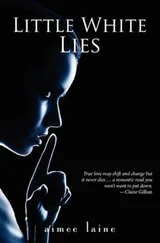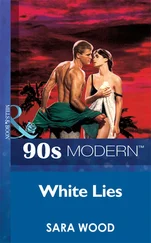She rode on along the riverbank to Gisborne and settled her horse in the municipal stables at the Peel Street bridge. The town lay spread out on the other side, under the watchful eye of Kaiti Hill, as the Pakeha called the maunga now. It was midday by the town clock when she joined the townsfolk on Gladstone Road.
Paraiti always came to Gisborne with some apprehension. It was a bustling country town, with shops, clothing emporiums and a couple of picture theatres all gathered in a four-block stretch along Gladstone Road, from the small port to the clock tower itself. The citizens were mainly Pakeha, but there were a few Maori around the usual watering holes: the hotels and billiard parlour.
Being among Pakeha was not natural for her; she felt she was crossing some great divide from one world to another. The slash of the scar across her face didn’t help either, since it marked her out in some sinister way. Even though these were modern times, and Pakeha liked to say that Maori and Pakeha were one people now, there were still signs of division: there were the Pakeha parts of Gisborne, particularly the palatial houses along Waterside Drive, and then there were the narrow shanty streets where the Maori lived.
Steadying her nerves, Paraiti made her way along the main street. The town was busier than usual. A general election was to be held at the end of the year and, already, members of the United and Reform parties were out, touting for votes: ‘Vote Forbes for Prime Minister,’ they cried. Not to be outdone, the rival Labour Party countered with shouts of ‘Michael Joseph Savage, he’s the man to vote for.’ They had even brought along some highland dancers to entertain the crowd.
Paraiti pushed through the throng to the Regent picture theatre to see what film was on. Although talkies had arrived a few years ago, she was delighted to see that Charlie Chaplin’s silent film The Gold Rush was showing: ‘Returns to the Screen by Popular Demand.’ She bought a ticket at the booth.
Humming to herself, Paraiti looked at the town clock again and saw that she had an hour to wait before the film began — time enough to go shopping. As she crossed Gladstone Road to Harrison’s Haberdashery, the latest model Packard went by with two women in it. The car was shiny, gleaming black, with every silver door handle and piece of trim polished to perfection. Driving the car was a young Pakeha woman with auburn hair; she was of considerable beauty, wearing a smart cloche hat and smoking a cigarette. Beside her was a middle-aged Maori woman, probably her maid. When the Maori woman saw Paraiti her eyes widened — she looked again and pointed Paraiti out to her mistress.
Paraiti entered Harrison’s and went over to look at the bolts of fabric. Despite the hard times the shop was filled with laces, silks, wools, calicoes, twills and cottons for those who could afford it. A senior saleswoman appraised her as she came in and immediately approached her.
‘May I help you?’ she asked.
There was no accompanying ‘Madam’ to her enquiry, but Paraiti had been to Harrison’s before and knew the kawa, the protocol:
1. Shop attendants were always supercilious but they were, sorry lady, only shop assistants, even if they were senior.
2. She had as much right as anyone else to shop in Harrison’s.
3. Her money was as good as anybody’s.
She unpinned her hat and placed it on the counter, claiming some territory. ‘Why, thank you,’ she said pleasantly, articulating the words in a clear, clipped accent. She had learnt by experience that one of the best ways of getting on in Pakeha society was to speak like they did; self-taught, she could now hold her own in English against any policeman, person of authority or, as in this case, supercilious shop attendant. And if that didn’t work …
Paraiti revealed her scar in order to intimidate the saleswoman; sometimes it came in handy. ‘I’d like to see that bolt of cloth and that one and that one,’ she said, pointing to fabrics that were highest in the stacks.
The saleswoman looked as though she would like to gag; she was only too happy to get away.
Good, that would keep the nuisance busy for a while.
Paraiti rummaged through some of the other fashionable material and accessories that were on display. By the time the saleswoman got down from two ladders, she had made her selection: a variety of attractive lengths of fabric, bold, with lots of flash. She also selected a couple of pairs of bloomers with very risqué ruffles on the legs. ‘Would you be so kind as to wrap all this,’ Paraiti asked as she paid for her purchases, ‘and I will collect the parcels at four at the latest.’
Avoiding looking at her scarred customer, the saleswoman nodded quickly — but Paraiti was not about to let her off the hook yet. Pleased with herself, she waited at the doorway for the saleswoman to observe the final piece of kawa in any commercial transaction:
4. When the paying customer is ready to depart, the door is always opened for her.
In a happy mood, Paraiti made her way back to the Regent. She was humming to herself as she entered the opulent foyer, with its gold cherubs and beautiful carpet and sweeping staircase. As she took her seat, the Maori maid, who had alighted from the Packard and had been watching Paraiti in the haberdashery, found a place a few rows back.
A man at the piano began to play ‘God Save the King’ and everyone stood to pay their respects to the sovereign. Then the audience settled to watch the first half: a short travelogue on India and a news digest.
Paraiti loved nothing better than to sit in the dark where nobody could see her, and get caught up in the fantasies on the screen. During the interval she treated herself to some chocolates and looked at the posters and lobby cards that lined the walls of the foyer. A talking movie was being advertised as a forthcoming attraction: The Private Life of Henry VIII starring Charles Laughton and ‘Alexander Korda’s sensational new star, Miss Merle Oberon’. She caught sight of the Maori maid and gave a brief nod. The house lights were dimming as she returned to her seat. With anticipation she watched as the grand blue satin curtains rose and The Gold Rush began; the Maori maid moved closer.
Paraiti had seen Charlie Chaplin’s previous movie, The Kid, and hoped that The Gold Rush would be just as good — and it was; it was even better. Paraiti thought she would die of laughter — the tears were running down her face at the part where the starving man kept looking at the little tramp and imagined seeing a nice juicy chicken. And she just about mimi-ed herself when the little tramp was in the pivoting hut caught on the edge of a crevasse; the hut see-sawed whenever Charlie walked from one side to the other. At the end, the entire audience clapped like mad: Charlie Chaplin was the greatest film clown in the world. Paraiti was so glad that she had come to town, but when she came out of the theatre into the mid-afternoon sun and saw the Maori maid standing in the sunlight like a dark presence, she felt as if somebody had just walked over her grave.
‘You are Scarface?’ the maid asked. She was subservient, eyes downcast, her years weighing her down — but her words were full of purpose. ‘May I trouble you for your time? I have a mistress who needs a job done. If you accept the job, you will find the price to your liking.’
Although everything in her being shouted out, ‘Don’t do this, turn away’, Paraiti equivocated. She had always believed in fate, and it struck her that coming to Gisborne might not be coincidental; and, after all, this maid was a Maori. She found herself saying, ‘Kei te pai, all right. Let me pick up my parcels from the haberdashery and drop them off at the municipal stables and then I will give your mistress an hour of my time.’
Читать дальше












